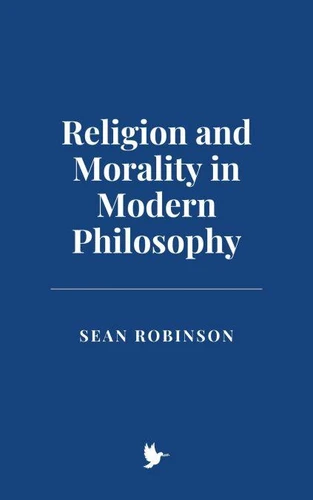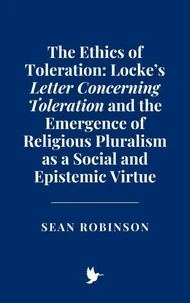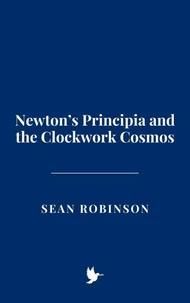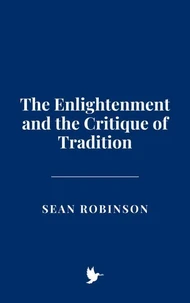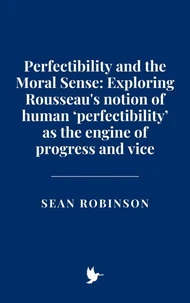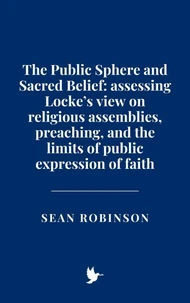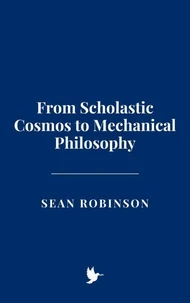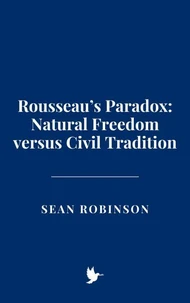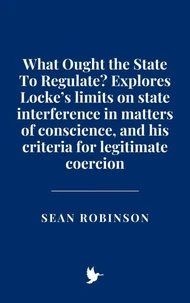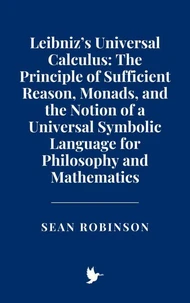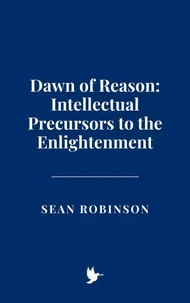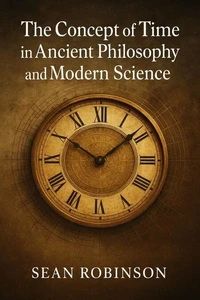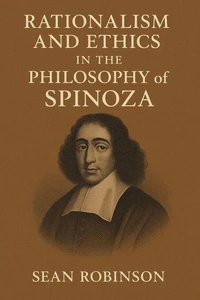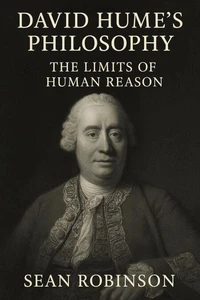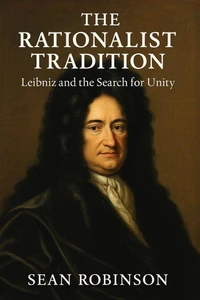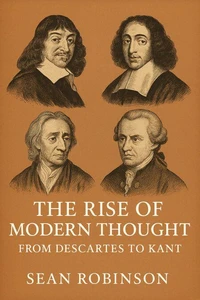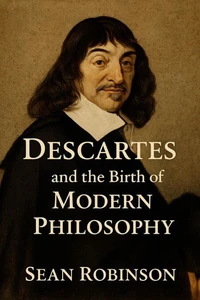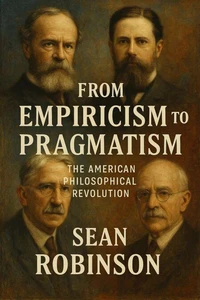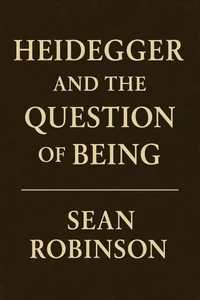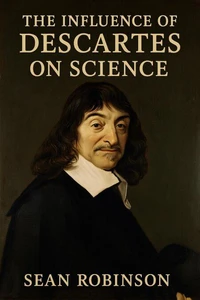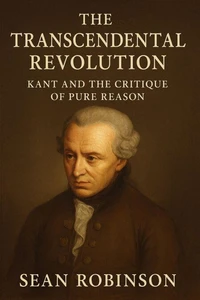Religion and Morality in Modern Philosophy
Par :Formats :
Disponible dans votre compte client Decitre ou Furet du Nord dès validation de votre commande. Le format ePub est :
- Compatible avec une lecture sur My Vivlio (smartphone, tablette, ordinateur)
- Compatible avec une lecture sur liseuses Vivlio
- Pour les liseuses autres que Vivlio, vous devez utiliser le logiciel Adobe Digital Edition. Non compatible avec la lecture sur les liseuses Kindle, Remarkable et Sony
 , qui est-ce ?
, qui est-ce ?Notre partenaire de plateforme de lecture numérique où vous retrouverez l'ensemble de vos ebooks gratuitement
Pour en savoir plus sur nos ebooks, consultez notre aide en ligne ici
- FormatePub
- ISBN8230200550
- EAN9798230200550
- Date de parution16/11/2024
- Protection num.pas de protection
- Infos supplémentairesepub
- ÉditeurIndependently Published
Résumé
This book explores the profound and dynamic relationship between religion and morality as it evolved through some of the most transformative periods in Western thought. Spanning the intellectual developments from Renaissance Humanism to the 19th century, this work examines the ideas of pivotal philosophers who grappled with the foundations of moral life, the authority of religious traditions, and the implications of secularization.
The book begins by tracing the revival of classical thought during the Renaissance and its influence on humanistic approaches to morality, emphasizing individual dignity and reason. It delves into the theological and moral upheavals of the Reformation, led by Martin Luther and John Calvin, which redefined faith, grace, and personal responsibility. The Enlightenment's rationalist turn is explored through figures such as Descartes, Spinoza, and Kant, who sought to ground morality in reason, natural law, or universal principles while engaging with the challenges of religious belief.
Romanticism and German Idealism, as represented by Schleiermacher, Hegel, and Fichte, reveal a reinvigoration of the emotional and spiritual dimensions of morality, highlighting the interplay between individual freedom and collective ethical life. The 19th century's critiques of traditional morality, advanced by Schopenhauer, Kierkegaard, and Nietzsche, confront the existential and cultural ramifications of modernity, including the "death of God" and the revaluation of values.
The secular moral systems of thinkers like Comte and Mill further illustrate the complexities of constructing ethical frameworks in an increasingly pluralistic and secular world. This book offers deep analysis and commentary on key primary texts and philosophical ideas, contextualizing them within their historical and cultural milieus. It interrogates enduring questions: Can morality survive the decline of religious authority? What role do emotion, reason, and tradition play in ethical life? How can individual freedom coexist with social cohesion?Through its examination of these themes, Religion and Morality in Modern Philosophy provides a comprehensive and nuanced account of the evolving dialogue between faith and ethics, highlighting its relevance to contemporary philosophical and cultural debates.
The book begins by tracing the revival of classical thought during the Renaissance and its influence on humanistic approaches to morality, emphasizing individual dignity and reason. It delves into the theological and moral upheavals of the Reformation, led by Martin Luther and John Calvin, which redefined faith, grace, and personal responsibility. The Enlightenment's rationalist turn is explored through figures such as Descartes, Spinoza, and Kant, who sought to ground morality in reason, natural law, or universal principles while engaging with the challenges of religious belief.
Romanticism and German Idealism, as represented by Schleiermacher, Hegel, and Fichte, reveal a reinvigoration of the emotional and spiritual dimensions of morality, highlighting the interplay between individual freedom and collective ethical life. The 19th century's critiques of traditional morality, advanced by Schopenhauer, Kierkegaard, and Nietzsche, confront the existential and cultural ramifications of modernity, including the "death of God" and the revaluation of values.
The secular moral systems of thinkers like Comte and Mill further illustrate the complexities of constructing ethical frameworks in an increasingly pluralistic and secular world. This book offers deep analysis and commentary on key primary texts and philosophical ideas, contextualizing them within their historical and cultural milieus. It interrogates enduring questions: Can morality survive the decline of religious authority? What role do emotion, reason, and tradition play in ethical life? How can individual freedom coexist with social cohesion?Through its examination of these themes, Religion and Morality in Modern Philosophy provides a comprehensive and nuanced account of the evolving dialogue between faith and ethics, highlighting its relevance to contemporary philosophical and cultural debates.
This book explores the profound and dynamic relationship between religion and morality as it evolved through some of the most transformative periods in Western thought. Spanning the intellectual developments from Renaissance Humanism to the 19th century, this work examines the ideas of pivotal philosophers who grappled with the foundations of moral life, the authority of religious traditions, and the implications of secularization.
The book begins by tracing the revival of classical thought during the Renaissance and its influence on humanistic approaches to morality, emphasizing individual dignity and reason. It delves into the theological and moral upheavals of the Reformation, led by Martin Luther and John Calvin, which redefined faith, grace, and personal responsibility. The Enlightenment's rationalist turn is explored through figures such as Descartes, Spinoza, and Kant, who sought to ground morality in reason, natural law, or universal principles while engaging with the challenges of religious belief.
Romanticism and German Idealism, as represented by Schleiermacher, Hegel, and Fichte, reveal a reinvigoration of the emotional and spiritual dimensions of morality, highlighting the interplay between individual freedom and collective ethical life. The 19th century's critiques of traditional morality, advanced by Schopenhauer, Kierkegaard, and Nietzsche, confront the existential and cultural ramifications of modernity, including the "death of God" and the revaluation of values.
The secular moral systems of thinkers like Comte and Mill further illustrate the complexities of constructing ethical frameworks in an increasingly pluralistic and secular world. This book offers deep analysis and commentary on key primary texts and philosophical ideas, contextualizing them within their historical and cultural milieus. It interrogates enduring questions: Can morality survive the decline of religious authority? What role do emotion, reason, and tradition play in ethical life? How can individual freedom coexist with social cohesion?Through its examination of these themes, Religion and Morality in Modern Philosophy provides a comprehensive and nuanced account of the evolving dialogue between faith and ethics, highlighting its relevance to contemporary philosophical and cultural debates.
The book begins by tracing the revival of classical thought during the Renaissance and its influence on humanistic approaches to morality, emphasizing individual dignity and reason. It delves into the theological and moral upheavals of the Reformation, led by Martin Luther and John Calvin, which redefined faith, grace, and personal responsibility. The Enlightenment's rationalist turn is explored through figures such as Descartes, Spinoza, and Kant, who sought to ground morality in reason, natural law, or universal principles while engaging with the challenges of religious belief.
Romanticism and German Idealism, as represented by Schleiermacher, Hegel, and Fichte, reveal a reinvigoration of the emotional and spiritual dimensions of morality, highlighting the interplay between individual freedom and collective ethical life. The 19th century's critiques of traditional morality, advanced by Schopenhauer, Kierkegaard, and Nietzsche, confront the existential and cultural ramifications of modernity, including the "death of God" and the revaluation of values.
The secular moral systems of thinkers like Comte and Mill further illustrate the complexities of constructing ethical frameworks in an increasingly pluralistic and secular world. This book offers deep analysis and commentary on key primary texts and philosophical ideas, contextualizing them within their historical and cultural milieus. It interrogates enduring questions: Can morality survive the decline of religious authority? What role do emotion, reason, and tradition play in ethical life? How can individual freedom coexist with social cohesion?Through its examination of these themes, Religion and Morality in Modern Philosophy provides a comprehensive and nuanced account of the evolving dialogue between faith and ethics, highlighting its relevance to contemporary philosophical and cultural debates.

